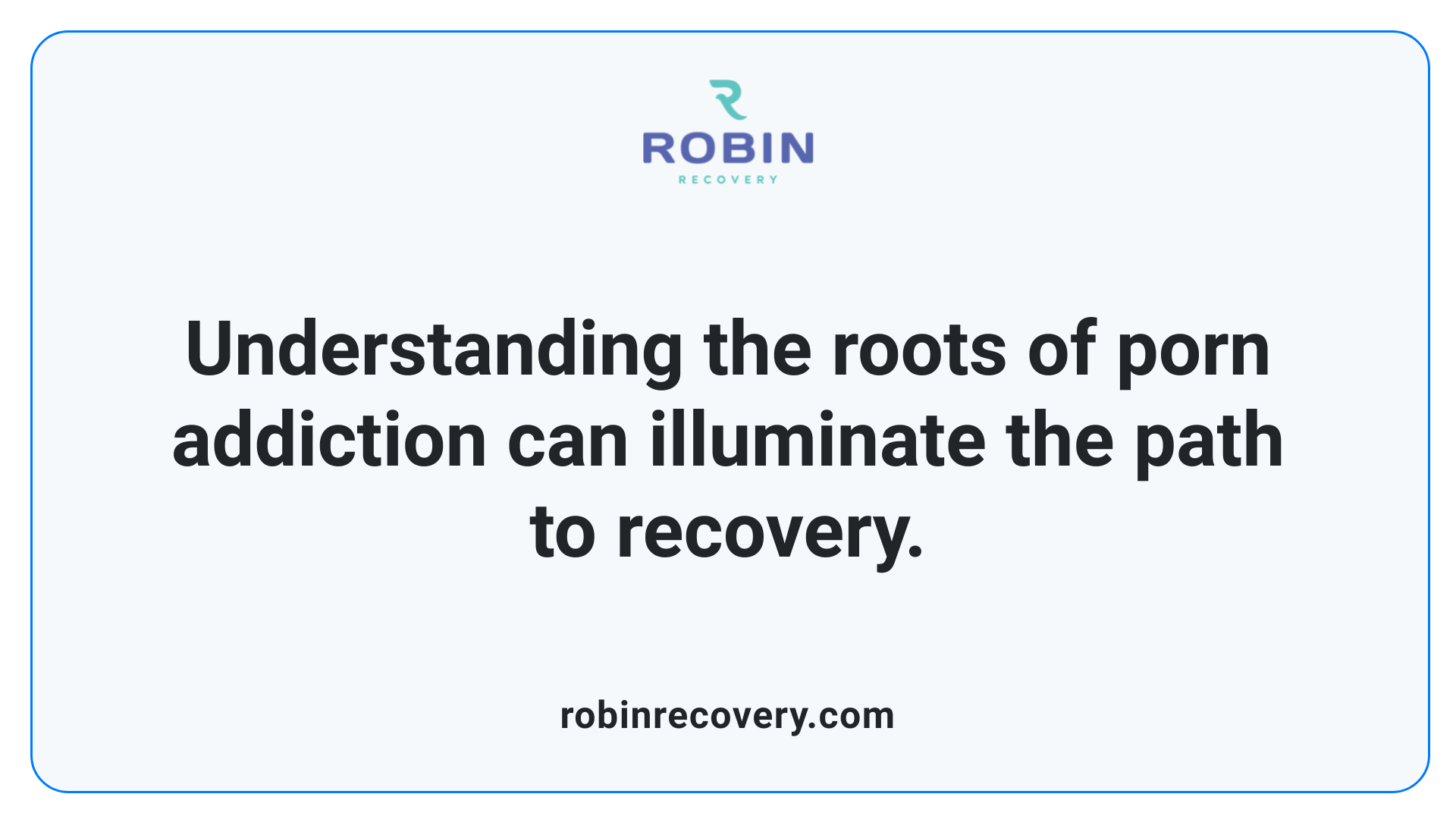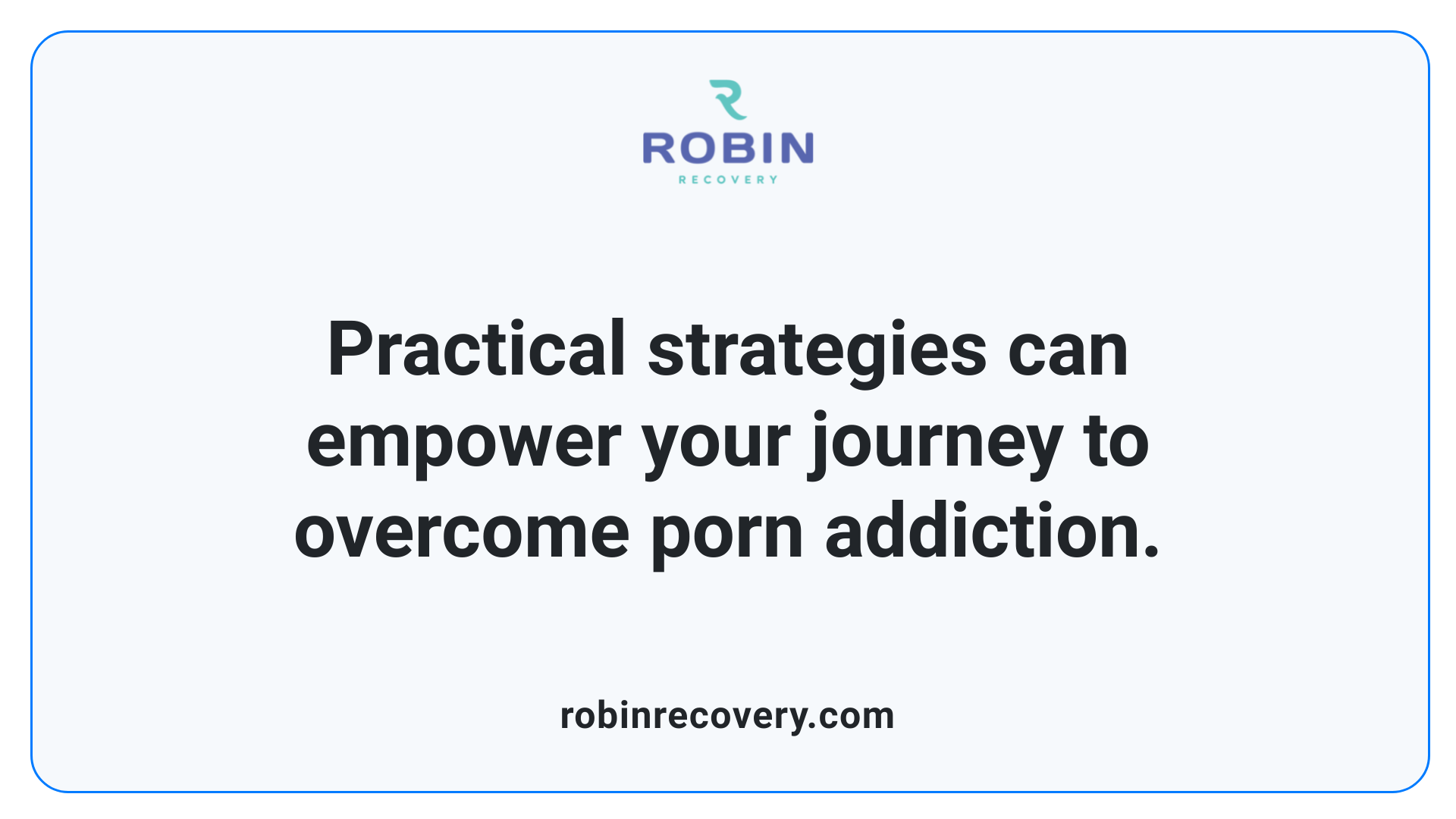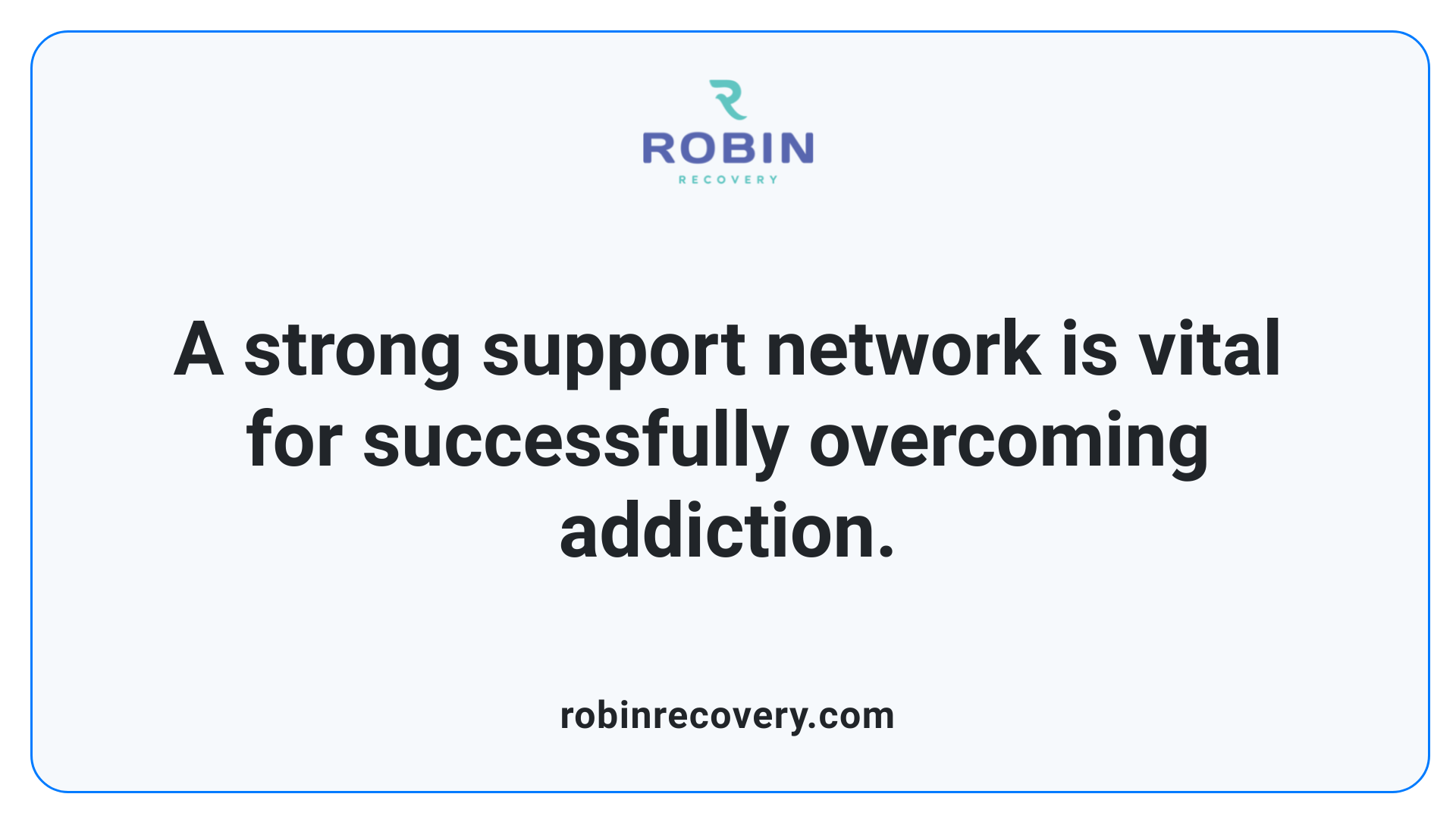How to Stop Porn Addiction

Understanding the Plight of Porn Addiction
Porn addiction is a significant and often misunderstood challenge that affects countless individuals. While the allure of pornography as a source of instant gratification may be strong, its lasting impact can lead to devastating effects on personal relationships, mental health, and overall well-being. This comprehensive guide explores the nature of porn addiction, including its causes, signs, and effective methods for overcoming its grip.
Decoding Pornography Addiction

What causes porn addiction?
Porn addiction is often rooted in the way the brain's reward system becomes rewired through consistent exposure to pornography. With repeated viewing, the brain begins to associate sexual arousal with specific stimuli, leading to uncontrollable urges and cravings. This behavioral addiction is akin to substance abuse, where individuals increasingly seek pleasure or stress relief from porn to escape negative emotions.
The role of the brain's reward system in addiction
As individuals engage in watching pornography, dopamine—a neurotransmitter linked to pleasure—is released in the brain, creating feelings of satisfaction. Over time, this can lead to a cycle of increased tolerance, where viewers require more extreme content to achieve the same thrill. This constant hunt for satisfaction often results in neglecting personal relationships and responsibilities, isolating the individual and deepening emotional barriers that hinder real-life connections.
Emotional and relational impact
The emotional toll of porn addiction is profound, often manifesting as guilt, shame, and anxiety. Many individuals find that relying on porn as an emotional outlet can exacerbate their struggles rather than resolve them. This coping mechanism traps them in a cycle where they avoid confronting underlying issues, making it increasingly difficult to connect intimately with partners. Consequently, relationships may suffer, leading to further isolation and disconnection.
In summary, understanding these elements can aid those affected by porn addiction in recognizing the underlying patterns and seeking the necessary help and support to initiate a path toward recovery.
Recognizing the Signs and Symptoms

Common Symptoms of Porn Addiction
Identifying porn addiction begins with recognizing its prevalent symptoms. Common indicators include:
- Spending excessive time viewing porn
- Failed attempts to quit
- Cravings for pornographic content
- Increased secretive behavior regarding porn use
- Heightened irritability when confronted about usage
- Loss of interest in real-life sexual relationships
Behavioral and Emotional Indicators
Alongside these symptoms, behavioral and emotional cues often reveal the presence of porn addiction. Look for changes such as:
- Neglecting responsibilities, whether at home or work
- Feeling compelled to consume more porn to achieve previous satisfaction
- Developing anger or hostility towards discussions about porn usage
- Experiencing guilt, shame, or anxiety as a result of porn consumption
Impact on Daily Life
The impact of porn addiction can permeate various aspects of an individual's life. This includes:
- Strained personal relationships due to a lack of intimacy
- Lowered self-esteem resulting from feelings of guilt or inadequacy
- Emotional distress manifesting in increased anxiety and mood swings.
Recognizing and acknowledging these signs is essential. They serve as a critical first step in the recovery journey, ensuring individuals can seek the appropriate help and support to reclaim control over their lives.
Strategies to Overcome Porn Addiction

Setting Boundaries
Establishing clear boundaries is essential in the journey toward overcoming porn addiction. Implementing measures such as website blockers and accountability software can significantly reduce opportunities to access pornographic content. These tools can act as useful filters, giving you the power to control what you see online and making it harder to slip back into old habits. Additionally, setting specific time limits on internet usage can create a safer digital environment for your recovery.
Using Technology to Limit Access
The use of technology can greatly aid in managing porn addiction. Consider tools like parental locks on your devices, which add an extra layer of difficulty in accessing pornographic material. Deleting all pornographic content from your phones and computers is another vital step; not only does this reduce temptation, but it also minimizes triggers associated with past habits. Employing apps designed to block adult sites can be a proactive approach to restricting access further.
Developing Healthy Coping Mechanisms
Identifying healthier alternatives to cope with stress, boredom, or emotional triggers is critical in this process. Engaging in activities like exercise, hobbies, or spending time with loved ones can help fill the void left by pornography. Activities that promote mindfulness, such as meditation or yoga, can also serve as effective outlets for unwanted urges. Writing in a journal allows you to track your triggers, aiding you in developing personalized coping strategies that foster resilience against temptations.
Building a Supportive Network

Importance of Support Systems
Creating a supportive network is essential during recovery from porn addiction. Engaging with trusted friends and family helps form a safety net, making it easier to stay on track. They can provide emotional support, understanding, and encouragement as you navigate challenges and celebrate progress.
Role of Accountability Partners
Partnering with someone who understands your struggles can significantly bolster your recovery efforts. An accountability partner can help you stick to your goals, confront urges, and keep discussions open. Whether it’s a close friend, mentor, or support group member, having someone to share your journey with ensures that you don’t feel isolated in your battle.
Community and Professional Resources
Utilizing community resources, such as support groups like Sex Addicts Anonymous (SAA) and Porn Addicts Anonymous (PAA), can reinforce your recovery journey. These groups offer a safe and judgment-free space to share experiences and gain insights from others facing similar challenges. Additionally, professional help from therapists specializing in addiction provides tailored strategies and therapies to address underlying issues, aiding long-term recovery.
Resource Type Description Benefits Support Groups Peer-led meetings focusing on shared experiences Connection, understanding, and accountability Accountability Partners Trusted individuals who provide encouragement and support Motivation and openness about struggles Therapists Professionals trained in addiction and recovery methods Personalized strategies and emotional support
Mindfulness and Self-Compassion in Recovery
Managing Setbacks
Relapses can be a common part of the recovery journey from porn addiction. It's vital to approach setbacks with a mindset of understanding rather than self-blame. Recognizing that recovery is a non-linear process allows individuals to move forward more effectively. Assess what triggered the slip and apply that knowledge to strengthen future coping strategies.
Practicing Self-Kindness
Exercising self-compassion involves treating oneself with kindness during difficult moments. Replace harsh self-criticism with supportive self-talk, reminding yourself that setbacks do not define your worth or progress. Acknowledging that many people experience similar struggles can create a sense of community and reduce feelings of isolation.
Using Mindfulness Techniques
Incorporating mindfulness techniques can significantly enhance your recovery process. Practices such as meditation and controlled breathing help individuals become more aware of their urges and emotions without acting on them. Regular mindfulness exercises foster a sense of calm and can improve emotional regulation, making it easier to resist temptations when they arise.
Techniques Purpose Benefits Meditation Cultivating awareness Reduces anxiety Controlled Breathing Eases stress and enhances focus Improves emotional control Journaling Identifying triggers and patterns Promotes self-reflection
By embracing mindfulness and self-compassion, individuals can create a supportive environment that nurtures personal growth and recovery.
Replacing Old Habits with Positive Activities
Engaging in New Hobbies
Finding new hobbies is an effective strategy for breaking the cycle of porn addiction. Engaging in interests such as painting, dancing, or learning a musical instrument can divert attention from urges. These activities provide a creative outlet and a sense of fulfillment that can fill the void left by pornography.
Exercise and Stress Relief
Regular physical activity serves as a powerful substitute for the time spent on pornography. Exercise releases endorphins, which enhance mood and reduce stress—factors that often trigger porn use. Activities like jogging, yoga, or team sports not only improve physical health but also foster social connections and boost self-esteem.
Creating a Fulfilling Lifestyle
Building a fulfilling lifestyle involves cultivating relationships and establishing routines that prioritize health and well-being. Spending time with loved ones, engaging in meaningful conversations, or volunteering in the community can contribute to personal growth and satisfaction.
Additionally, setting aside time for mindfulness practices, such as meditation and controlled breathing, can help manage urges and cultivate self-awareness.
By replacing old habits with positive activities, individuals can develop a rewarding life that reduces the temptation to engage in pornography.
Seeking Professional Help

Therapy and Counseling Options
When facing porn addiction, seeking professional help can be a transformative step. Various therapy options exist to address the specific needs of individuals battling this struggle. These may include individual therapy, group therapy, and family counseling. Support from a trained therapist can provide crucial insights and coping strategies tailored to each person's situation.
Cognitive Behavioral Therapy (CBT)
One highly recommended approach is Cognitive Behavioral Therapy (CBT). This method focuses on identifying and changing negative thought patterns that contribute to addictive behaviors. CBT equips individuals with practical coping strategies, facilitating healthier responses to triggers and cravings.
Benefits of Professional Guidance
Engaging with a therapist offers numerous benefits. Professionals can help uncover underlying issues, promote self-awareness, and encourage accountability through structured support systems. Furthermore, therapy fosters understanding that setbacks are part of the recovery process, cultivating resilience and long-term success.
By understanding the role of professional help, individuals can harness additional tools to overcome porn addiction.
The Importance of Patience and Perseverance
Embracing Setbacks as Learning Opportunities
Setbacks are inevitable in the journey toward recovery from porn addiction. Each relapse or moment of temptation can serve as a valuable learning opportunity. Recognizing that these moments do not define your overall progress is crucial. Embracing a mindset of learning encourages growth and fosters resilience as individuals reassess their strategies and improve their coping mechanisms.
Understanding Non-Linear Recovery
Recovery is rarely a straightforward path. It can resemble a winding road filled with ups and downs rather than a linear progression. Understanding this reality is essential; some individuals may experience periods of success followed by challenges. Accepting the non-linear nature of recovery helps individuals develop a more realistic perspective on their progress and reduces feelings of discouragement when setbacks occur.
Maintaining Motivation and Hope
To sustain motivation, it’s vital to focus on the benefits of a porn-free life. Reflecting on personal values, such as improved relationships, mental health, and self-esteem, can help maintain a hopeful outlook. Celebrating small milestones throughout the recovery journey can further reinforce positivity and encourage perseverance, reminding individuals that lasting change is possible.
Topic Description Setbacks as Learning Use setbacks as opportunities for reflection and growth. Non-Linear Recovery Understand that recovery involves ups and downs rather than a straight path. Motivation and Hope Focus on the positive outcomes of recovery to maintain motivation and resilience.
Personal Testimonies and Insights
Real-life Experiences
Many individuals have shared their journeys with porn addiction, illustrating the struggle and the eventual path to recovery. For example, one individual recounted being exposed to hardcore pornography at a very young age, which spiraled into a long battle with addiction. Facing denial about his addiction was a tremendous hurdle, yet acknowledging it marked the beginning of his recovery journey.
Lessons Learned from Recovery Journeys
Throughout these testimonies, common themes emerge. Recognizing the underlying reasons for addiction, such as relational hurt or emotional distress, plays a significant role. Participants emphasize the importance of developing healthier coping mechanisms, such as recognizing triggers and replacing porn habits with fulfilling activities. Journaling and open conversations with loved ones were also highlighted as valuable tools in their recovery toolkit.
Hopeful Transformations
In reflecting on their experiences, many illustrate a profound transformation. Individuals who, once felt trapped in a cycle of shame and secrecy, reported feelings of freedom and renewed purpose after engaging with support communities and professional counseling. The journey motivated them to cultivate a fulfilling life beyond addiction and embrace hope for ongoing recovery.
Moving Toward a Life Free from Porn
Overcoming porn addiction is a journey that involves acknowledging the problem, understanding its deep-seated causes, and taking active steps towards recovery. With determination, support, and the right tools, individuals can break free from the chains of addiction and move towards a healthier, more fulfilling life. Embracing the insights and techniques outlined in this article provides a pathway to regaining control and achieving lasting change.
References
- Overcoming Pornography Addiction: A Personal Journey to Freedom
- How to Stop a Porn Addiction: 11 Expert Tips - wikiHow
- How I Overcame My Porn Addiction - Cru
- How To Stop Watching Porn - 11 Steps to Quit Porn For Good!
- How to Stop Porn Addiction: Tips and Strategies
- Porn Addiction: 11+ Key Signs, Symptoms, and Lasting Effects
- How to Stop Porn Addiction - MedCircle Mental Health Community
- How to Stop Porn Addiction | Blog - Enterhealth
- How to Stop Watching Porn - Verywell Mind
